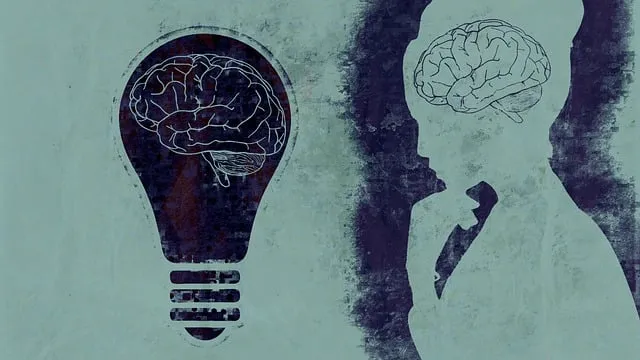Kaiser Permanente mental health Boulder emphasizes the vital skill of emotion regulation, reducing mental health risks and enhancing quality of life. They offer evidence-based techniques like mindfulness, CBT, and stress management through specialized programs and risk assessment services. By tracking emotional triggers via journaling and identifying negative thought patterns, individuals gain control over stress, anxiety, and depression. Mindfulness and body-based practices, integral to their approach, improve mental wellness and resilience, benefiting both personal and professional relationships.
Emotion regulation techniques are essential tools for navigating life’s challenges. This article explores effective strategies, highlighting the pivotal role played by Kaiser Permanente Mental Health Boulder in teaching these skills. We delve into the science behind emotion regulation and its profound impact on well-being. Key sections include understanding triggers, cognitive strategies, and mindfulness practices, offering practical insights for fostering emotional balance. By learning these techniques, individuals can enhance their resilience, thanks to the innovative programs provided by Kaiser Permanente Mental Health Boulder.
- Understanding Emotion Regulation and its Impact
- The Role of Kaiser Permanente Mental Health Boulder in Teaching Techniques
- Identifying Triggers: A Foundation for Effective Regulation
- Cognitive Strategies: Shaping Thoughts for Emotional Balance
- Mindfulness and Body-Based Practices for Daily Resilience
Understanding Emotion Regulation and its Impact

Emotion regulation is a vital skill that enables individuals to manage and adapt their emotional responses effectively. It’s about recognizing and understanding emotions, then choosing how to express or suppress them in different situations. This process plays a significant role in maintaining mental wellness, as it helps to prevent impulsive behaviors and promotes healthier relationships. According to Kaiser Permanente mental health Boulder, teaching emotion regulation techniques can be a game-changer for individuals struggling with emotional challenges.
The impact of mastering these skills is far-reaching, reducing the risk of developing mental health disorders and enhancing overall quality of life. The Mental Wellness Podcast Series Production often features experts who delve into this topic, emphasizing its importance in today’s fast-paced world. Moreover, healthcare providers can benefit from Inner Strength Development training to improve their Cultural Competency Training, allowing them to offer more personalized and effective care to a diverse range of patients.
The Role of Kaiser Permanente Mental Health Boulder in Teaching Techniques

Kaiser Permanente Mental Health Boulder plays a pivotal role in teaching effective emotion regulation techniques to individuals seeking to improve their mental well-being. This renowned healthcare provider offers specialized programs and resources, focusing on evidence-based practices that empower people to manage their emotions healthily. Through workshops, therapy sessions, and community outreach, they educate participants on various strategies, ranging from mindfulness and cognitive behavioral therapy (CBT) to stress management techniques.
Their comprehensive approach includes not only teaching these skills but also fostering a culture of self-care. They encourage the development of personalized self-care practices as part of a holistic mental health strategy. Moreover, Kaiser Permanente Mental Health Boulder prioritizes the well-being of its professionals by offering risk assessment services and promoting sustainable self-care routine development to prevent burnout. This commitment ensures that both patients and providers alike receive the support needed for optimal emotional regulation and overall mental health.
Identifying Triggers: A Foundation for Effective Regulation

Identifying triggers is a fundamental step in mastering emotion regulation, and it’s an essential aspect of Kaiser Permanente mental health services in Boulder. By understanding what sets off our emotional responses, we can begin to manage them more effectively. This process involves recognizing patterns and environmental cues that lead to specific emotions, whether it’s stress, anxiety, or even depression. Through this awareness, individuals can start to develop strategies to prevent or mitigate these intense feelings.
At Kaiser Permanente, mental wellness coaching programs have been designed to guide individuals through this journey of self-discovery. These programs encourage clients to keep emotion journals, where they record triggers and the subsequent emotional reactions. Over time, this practice helps in identifying recurring themes and patterns, allowing for more targeted interventions. Additionally, the production of a mental wellness podcast series can offer valuable insights into various techniques for depression prevention and managing triggers, making it an accessible resource for those seeking support in Boulder.
Cognitive Strategies: Shaping Thoughts for Emotional Balance

Cognitive strategies play a pivotal role in emotion regulation techniques, focusing on shaping one’s thoughts to achieve emotional balance. This involves recognizing and challenging negative or distorted thinking patterns that contribute to intense emotions. Mental Wellness Journaling is a powerful tool within this framework. By documenting thoughts and feelings, individuals can identify recurring cognitive distortions and start to reframe them into more realistic, balanced perspectives. For instance, instead of dwelling on failures, one might acknowledge the lessons learned and the growth it fostered.
At Kaiser Permanente mental health Boulder, professionals emphasize the importance of Self-Awareness Exercises in this process. These exercises help individuals understand their emotional triggers and typical thought patterns, enabling them to develop more adaptive responses. For example, a risk management planning approach can be used, where one predicts potential stressors and devises coping strategies in advance. This proactive mindset empowers individuals to navigate challenging situations with greater resilience, fostering improved mental health and overall wellness as supported by Mental Wellness Journaling Exercise Guidance.
Mindfulness and Body-Based Practices for Daily Resilience

In today’s fast-paced world, fostering mental wellness through mindfulness and body-based practices has become increasingly vital for building resilience, especially in environments like Kaiser Permanente mental health Boulder. These techniques offer a powerful toolkit for navigating life’s challenges and conflicts with greater ease. By focusing on the present moment and cultivating awareness of physical sensations, individuals can develop a deeper understanding of their emotional responses, enabling more effective conflict resolution techniques.
Mindfulness practices, such as meditation and mindful breathing exercises, have been shown to reduce stress and anxiety, enhancing one’s overall mental wellness. When combined with body-based practices like yoga or tai chi, these methods promote physical relaxation and cognitive clarity. Incorporating mindfulness into daily routines allows individuals to build resilience that can be applied not only in personal settings but also in professional environments, fostering healthier interactions and relationships.
Emotion regulation is a powerful tool for enhancing overall well-being, and Kaiser Permanente Mental Health Boulder plays a vital role in equipping individuals with effective techniques. By understanding emotional triggers and adopting strategies like cognitive restructuring and mindfulness practices, people can gain significant control over their emotional responses. These skills foster resilience, enabling individuals to navigate life’s challenges with greater ease. Through programs offered by Kaiser Permanente, folks in Boulder and beyond can access valuable resources for mastering emotion regulation and leading more balanced lives.






